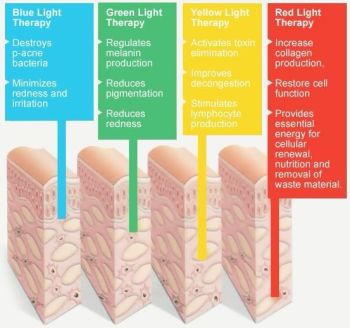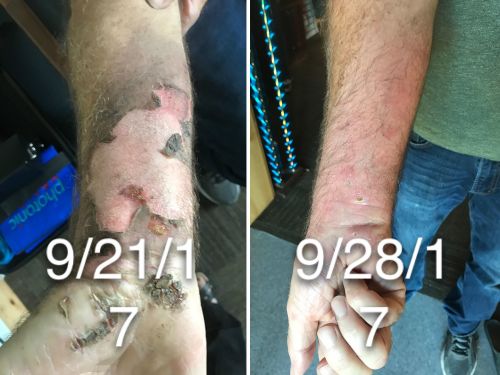Red Light Therapy
Red Light Therapy
What is Photonic Therapy and What Can it Treat?
University research has shown that Photonic therapy is a proven way to treat slow-healing soft tissue injuries including:
Muscle Strains
Tendon Injuries
Cuts
Sores
Wounds
Body Soreness
Lameness
Photonic therapy has worked for more than a century. In the late 1890s, scientist Niels Ryberg Finsen won a Nobel Prize for his use of Photonic therapy to treat a smallpox and lupus. NASA has been using Photonic therapy to speed up the healing of astronauts. Photonic therapy is proven to heal injuries up to 60% faster than traditional approaches.
The Stimulation of Cells
Photonic Light Therapy has the ability to address physiological, mental, and emotional issues. It works by stimulating the cells. Healthy cells vibrate at about 660 nanometers. When tissue sustains injury or illness the vibrational level in the affected cells decreases. Increasing the vibrational level in the cells with the Photonic therapy accelerates the vibration of mitochondria within the cell and this increases ATP production. ATP tells the brain to release endorphins, anti-inflammatories, collagen, and serotonins: this speeds up the natural healing process.
Increasing the vibrational level in the cells with the Photonic therapy accelerates the vibration of mitochondria within the cell and this increases ATP production. ATP tells the brain to release endorphins, anti-inflammatories, collagen, and serotonins: this speeds up the natural healing process.
Nine Ways Photonic Therapy Accelerates Recovery
1.Reduces pain by increasing production of endorphinsa, the body's natural pain killer.
2.Reduces inflammation by suppressing enzymes that create swelling, redness, and pain.
3.Boosts the release of anti-inflammatory enzymes to reduce swelling quickly.
4.Increases cellular regeneration by stimulating the mitochondria within the cell. This increases the production of ATP and this means that damaged cells accept nutrients and eliminate toxins faster.
5.Increases lymphatic drainage and increases circulation.
6.Relaxes tight muscles and quickly releases muscle cramps.
7.Increases anti-viral properties by increasing antibody production in the blood stream.
8.Improves structure of tendons, bones, skin, teeth, and cartilage by encouraging Collagen production.
9. Regulates serotonin levels. Serotonin helps to regulate inflammation and allergic reactions and it plays an important role in blood clotting, stimulating a strong heart beat, initiating sleep, and fighting depression. It also stimulates the smooth stomach in the intestinal wall.
The following major academic institutions have researched the benefits of Photonic therapy:
UCLA Medical Center
University of Illinois
The Acupuncture Institute, Toronto, Canada
Department of Surgery, University of Utah Medical Center
Stanford University School of Medicine
University of Wisconsin Medical School

